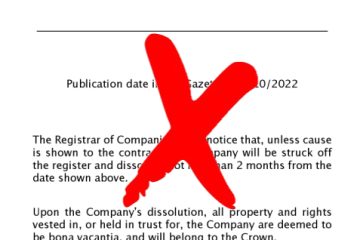
Dear Supporters,
Please can you help the Why This Field (WTF) campaign by joining this emailing and letter-writing community action as explained below.
Please read this intro first!
This document is a carefully-checked fact-sheet for you to draw elements from, so that we can each create our own personalised email / letter, adding our own extra reasons, experiences and feelings.
As you probably know, the WTF campaign was created by members of the Totnes community to ensure the large green space directly opposite KEVICC school is sold to Totnes Town Council. Known as upper KEVICC Lower Field, and including the Elmhirst Building, this area is already listed as an Asset of Community Value..
The goal is for the large green space and Elmhirst building to continue to serve the community, rather than being sold to a private developer, seeking only to profit from our town by demolishing a community asset and concreting over this precious green lung with executive housing and/or commercial developments.
There are more details about the Town Councils plans at the end of this document
We haven’t seen any evidence to believe there is anything underhand in this process. However, we do strongly believe that the very small number of decision-makers within KEVICC and the Dart Valley Learning Trust (some of whom are the same people) have lost sight of what is best for the children in their care (present, past and future), their families and the wider community, possibly due to the limited advice they have received from the TDA Group. This totals many thousands of people whose health and wellbeing they have both a moral and, in the case of DVLT Directors, a fiduciary duty to prioritise as our local community college.
We fully support the school in seeking investment to improve / replace the long-neglected school buildings, but we understand that the money from the sale of the other large plots which KEVICC is selling for development, combined with the market value Totnes Town Council are offering for the upper Lower KEVICC Field plot will be more than what is needed to achieve those goals, so we see the school accepting the Town Council Bid as a win-win scenario for the school and community.
With this in mind, we ask supporters to please be respectful and concise in writing to try to persuade each of the people who have the power to make the right decision and those with influence to act to make a difference.
HOW TO USE FOR EMAILING:
- Create your own personalised text for the subject line of your email.
- Select from the bullet pointed info and the Key Point summaries in each section to help create your email.
- Rephrase in your own way as much as possible, and please include your own personal insights.
- YOU DON’T NEED TO INCLUDE EVERYTHING! Choose as little or as much as you feel is right.
- Please send individually and personally to each recipient listed by copying and pasting into several new messages. .
- Please send one copy of what you’ve sent to us too at info@whythisfield.co.uk if you feel comfortable doing that
PEOPLE TO EMAIL:
| Name | Role | Email address |
| The Rt Hon James Cleverly MP | Secretary of State for Education | james.cleverly.mp@parliament.uk House of Commons London SW1A OAA Also copy to: CorrespondenceTeam.PO@education.gov.uk |
| Baroness Barran | Parliamentary Under-Secretary of State for the Schools System (See Below) | barrand@parliament.uk & schoolsystem.ps@education.gov.uk House of Lords London SW1A 0PW |
| Anthony Mangnall | MP for Totnes | anthony.mangnall.mp@parliament.uk |
| Matthew Shanks | Executive Principal and Trust Leader | admin@educationsouthwest.org.uk |
| Alan Salt | Principal and Governor – Director/Trustee of DVLT and person with significant control. | ASalt@kingedwardvi.devon.sch.uk |
| Jim Lodge | Chair of Board of Governors – Director/Trustee of DVLT | JLodge@kingedwardvi.devon.sch.uk |
| Dr Michael Young | Foundation Governor – Chair of Operations Committee | MYoung@kingedwardvi.devon.sch.uk |
| James Hartridge | Staff Governor | JHartridge@kingedwardvi.devon.sch.uk |
| Julian Carnell | Co-opted Governor Chair of Site Management Committee | JCarnell@kingedwardvi.devon.sch.uk |
| Wendy Ormsby | Co-opted Governor | WOrmsby@kingedwardvi.devon.sch.uk |
| Karen Sewell | Co-opted Governor Chair of Standards Committee | KSewell@kingedwardvi.devon.sch.uk |
| Gillian Healey | Co-opted Governor | GHealey@kingedwardvi.devon.sch.uk |
| Antony Power | Foundation Governor | APower@kingedwardvi.devon.sch.uk |
| Jo Cooke | Co-opted Governor | JCooke@kingedwardvi.devon.sch.uk |
SPECIFIC NOTE ABOUT LETTERS TO BARONESS BARRAN
If possible, especially if you are not keen on email, please also contact the influential Baroness Barran with an actual letter, addressed:
The Baroness Barran
House of Lords
London
SW1A 0PW
- Beginning of letter… Dear Lady Barran
- End of letter… Yours sincerely

If possible, please also email us a copy of your letters/emails to info@whythisfield.co.uk
Thank You – Together we’re stronger!
The WTF Team
Background
KEVICC is a foundation school, and a member of the Dart Valley Learning Trust (DVLT), which was established in 2011 after a period of consultation. The freehold of the whole KEVICC site was transferred to the DVLT from Devon County Council in 2012. This Trust currently has 5 Trustee/Directors. The school has a Governing Body which currently has 10 governors.
Concerns about KEVICC Governing Body
- The Board has gone from having a nearly full complement of 14 governors in the July 2021 Babcock external review (with one vacancy for a foundation governor) to having 10 governors and no named parent governor.
- In this same external review document the Advisor ‘noted a high number and frequency of part 2 (confidential) minutes. The Advisor understands that this has been largely due to time-limited sensitive information that has been discussed at meetings and this will now largely move to the public domain. As the College is a public body, spending public money it is important that part 1/open minutes become the standard as soon as possible’.
- Most of the detailed work on the sale has been done by the Site Development sub committee, who have advised the main board of governors and keeps them updated. This sub committee (SDG) consists of the same four governors who are also on the Board of the DVLT – Jim Lodge (also Chair of the Board of Governors), Alan Salt (Principal), Julian Carnell and Anthony Power with advice from Stephen Corline, the KEVICC Business and Finance Director.
- It is this sub committee who have undertaken all of the liaisons with the town council and the TDA Group. The fact that the same four people are involved at every level of the sale and the only Governors who have detailed information on the process, means that the group of 4 people co-ordinating the sale has unrepresentative power on such a momentous change.
- These four governors also make up four of the five Directors/Trustees on the Dart Valley Learning Trust which legally holds the land.
- Concerns have been raised by members of the community, town councillors, district councillors and county councillors that their letters to the governors are unacknowledged, remain unanswered or are not passed on.
Key points re Concerns about KEVICC Governing Body
We do not feel the full governing body of King Edward VI Community College has the full information it needs to make an all-round informed decision on what the ‘best’ bid would be for the students of the school, while students there and throughout their lives, nor for the wider community.
This is because a sub committee, advised by the TDA Group which exists to make profit to reinvest into Torbay Council and is working on a commission basis, has made most of the decisions and presented them as a formality to the full governing body.
The limitation in potential approaches to the sale of the land that the KEVICC sub committee is passing on as ‘fact’ to the rest of the governors was made clear at a public meeting in Totnes Civic Hall on 17th June 2022 attended by 120 or so concerned local people, when the KEVICC Chair of the Governors Jim Lodge went on the record saying that governors are under an obligation to go with the highest financial offer. This is not in fact the case, but if the Chair of the Governors expresses this misconception to a public meeting, we have little doubt the same message has been passed on as ‘fact’ to other governors.
Concerns about the Dart Valley Learning Trust
- The company rules – see section 14.4 of the Articles of Association – require the DVLT to have trustees from Transition Town Totnes, Falmouth University & the Co-op Society. There has been no representation from these organisations since 2015 and Transition Town Totnes have only very recently received a formal invitation to take their places on the Board. We do not know if Falmouth University or the Co-op have received an invitation but a recent conversation with Andrew North who was the original co-op member in his role as Regional Secretary of the Co-Operative Group Ltd at the time of establishing the DVLT has ascertained he has not been approached.
- Trustees are supposed to have the oversight of a stakeholder forum according to its rules however no forum is functioning. This has led to Tony Whitty being the sole representative of that stakeholder forum as a Director/Trustee for 8 years. The forum is supposed to meet 3 times a year, which does not happen, and put forward and elect a Director/Trustee to represent them which also hasn’t happened.
- Company rules provide for the company to have a cross section of the community as members – pupils, parents, staff, community members & orgs etc. However, members have not been consulted on the sale of the land & the register of members has not been provided, despite several requests, including from District Cllr John Birch.
- This leaflet shows the intention and process for involving members when the DVLT was established
- Because the Directors of the DVLT are all governors or employees (barring Tony Whitty) rather than representatives of the community as they are supposed to be, there is an absence of impartial oversight & scrutiny, which is a main function of the Board of Governors.
- The DVLT was established in 2011 and yet only 2 sets of minutes are published on KEVICC website. At a recent Full Governing Body meeting on the 5th April 2022 it stated that ‘The DVLT is holding its AGM soon to discuss academisation and land disposal’. Yet no notice was made of this meeting to members, and no record of the minutes are public.
- DVLT members have written to the trustees via Cllr Birch, requesting an AGM. At first the DVLT tried to deny they were still members but proof that they were was provided. This has not been acknowledged so as yet there has been no response.
Key points re Concerns about the Dart Valley Learning Trust
The role of the DVLT is to ensure that the community has involvement in holding the school assets in trust and that the governors have a linked scrutiny role.
The fact that 4 of the 5 directors of the DVLT are THE SAME 4 PEOPLE as on the KEVICC sub-committee managing the sale of land, and that there is a lack of parent governors and community governors to oversee the Trust has significantly weakened, if not destroyed altogether, the balance of opinion on the matter of the sale of this vital greenfield site.
We firmly believe that if the DVLT were following its own Articles of Association correctly, and had been including the community properly in the decision-making process as the articles state they should, the negotiations with Totnes Town Council would have been far more productive and an agreement for sale would have been reached to preserve the field and the Elmhirst Building as a community asset.
Best Value
- It appears from the KEVICC site development sub committee terms of reference that the government guidance on best value in the procurement of school resources has been used to guide decisions about the site disposal, which is an inappropriate use and has led to limited decision making.
- Instead it is guidance known as ‘best consideration reasonably obtainable’ used by RICS, property lawyers and others in the field which should have been used. Whilst guidance on this is not straightforward, this seminar paper by Barrister Constanze Bell of Kings Chambers states that:
“Conditions or benefits arising which cannot be considered when calculating best consideration, include those which do not have a direct commercial or monetary value to the Council such as: job creation, social value – ie improved visitor numbers to a particular area; or using the land for a particular desirable purpose But, these conditions can be taken into account if a disposal at less than best consideration is proposed as they are “social, economic or environmental benefits” which may arise from the disposal”.
- There is an increasing emphasis and trend on measuring social value in the property sector. TOMS is currently the most respected measure but this is being regularly improved upon.
- It has been determined that there can/should be a transfer of assets between one public body and another according to the Cabinet Office Guide for the Disposal of Surplus Land 2017 (updated in 2021). A legal mechanism exists under best value guidance (Cabinet Office 2017) to transfer the site to the Town Council at a fair market value, determined by an independent valuer: “Public sector organisations may transfer property among themselves without placing the asset on the open market, provided they do so at market prices and in appropriate circumstances.” An open market valuation certificate will be sufficient to satisfy requirements of achieving best value in the disposal. Managing Public Money, Box A4, 15C, sets out a protocol for transfers of assets.
Key points re Best Value
The interpretation of best value here must be the full range of indicators available for consideration of the ‘social, economic and environmental value’ of selling the field and Elmhirst Building to the Town Council. As was pointed out above, the KEVICC chair of governors has already shared his belief around the best value as a narrow financial-only concept. The full governing body need more time to understand what best value really means, legally and morally
The Town Council plans to consult the community and make use of the green space to include elements that not only children at the school can enjoy, but the wider community too: suggestions so far include planting trees and shrubbery to create an attractive park, a playground, improved sports facilities for the field and the nearby river, a community vegetable garden, a park and ride and electric vehicle charging hub … and using the buildings for a range of uses such as a cafe, sports equipment hire, changing rooms – and broad community use as it was when being used by TCDS until their licence was terminated in early 2020 and the building boarded up.
This should be an essential part of the consideration on the site disposal decision by the Secretary of State.
‘Asset of Community Value’
- The Localism Act has the provision for a Community Right to Bid for Assets of Community Value (ACV). On the 5th November 2021 SHDC granted an ACV for the Land and Buildings at KEVICC Lower Site, following a listing request from the Town Council on the 3rd September 2021.
- KEVICC attempted to block the listing, contesting the case made to SHDC about community use even though this was evidenced and accurate.
- The Lower Field was given to Totnes by the Elmhirsts of Dartington. A 1931 letter from the headmistress of Lower School (now known as the Elmhirst building which was a girls school at the time) thanks Dorothy Elmhirst for the gift of the field and details how much she enjoys the outlook.
- A newspaper article at the same time lays out how Leonard Elmhirst gave the council land for the new school on the condition that the field was kept for recreational use and sports by the young. Although not legal documents, they clearly show intent and should be honoured.
Key points re Asset of Community Value
As the Land and Buildings at KEVICC Lower Site have an ACV listing, the Secretary of State should give particular consideration to the Town Council bid as part of the decision about whether to grant permission for site disposal.
Moreover, if permission is granted, a condition of this could be included for the sale of the Lower Field to TTC at open market valuation.
The KEVICC Consultation and the Why This Field Consultation
- KEVICC conducted a public consultation about the sale of the whole site in 2021. The consultation had fundamental methodological flaws that limit its value:
- The survey conflated several actions into a ‘plan’ and asked respondents to indicate whether or not they agree with the plan. This meant that respondents could not express support for the development of the estate without also supporting the land sale.
- The survey received only 99 responses over a six week period.
- The consultation was poorly promoted and considerably shorter (6 weeks = half time length) than government advice: (Criteria 2 page 4)
- With expert oversight from Dr Kevin Burchell (Research Fellow at University of Birmingham), the Why This Field group conducted an academically sound, focused and clear public consultation in 2022, reported in full here. To date this has received almost 600 responses. The consultation has three key findings:
- 91% of respondents indicated support for the Totnes Town Council bid and proposal.
- 4% of respondents indicated support for a private sale of the land in question.
- These findings have been consistent since the first analysis on the basis of 400 responses. This gives us confidence that they would most likely remain constant as the number of respondents grows and grows; on this basis, it is clear that the town supports the aims of WTF and TTC.
Key points re The KEVICC Consultation and the Why This Field Consultation
The methods the KEVICC consultation used were flawed as respondents could not express support for the development of the school without also supporting the whole site sale. The consultation period was short and not widely advertised, receiving only 99 respondents.
The KEVICC consultation was conducted before the proposal from the Town Council had been made so no-one had an idea of the positive alternative for the Lower Field site
The Why This Field Consultation was prepared by an expert researcher to ensure its results are a meaningful expression of public opinion. Nearly 600 people have responded up to now, with the percentage in favour of the school accepting the Town Council bid remaining overwhelming throughout; 91% of 588 respondents at last count.
Air Quality Management Area (AQMA)
- The Ashburton Road which runs past KEVICC, has had an AQMA on it for over ten years. This means that the pollution on it already breaks WHO recommended levels regularly.
- It is dangerous to walk and stand by this road (described as equivalent to standing by the Devon Expressway A38). Local councils have a statutory responsibility to improve air quality along this road, but nothing has been done to reduce the pollution.
Key points re Air Quality Management Area (AQMA)
KEVICC could and should be taking air quality into consideration when considering bids for the land, rather than washing their hands of negative consequences by saying this will be dealt with at the planning stage (which has not happened in any of the planning permissions given in the last ten years in Totnes and surrounding areas). It is within their power to improve the air pollution around the school, particularly on the route that children take to school, and it is their responsibility to look after the health and wellbeing of the children in its care.
Lower Field is one of a dwindling number of green sites in Totnes and along a particularly polluted road, which is used by a large number of residents and school children. It is an extremely valuable site not only for the school and residents but also to future generations.
Serving the Community: Totnes Town Council’s Plans
· Using public works loan board money to purchase the land and buildings from DVLT-KEVICC at market value as assessed by a professional valuer.
· The attractive Elmhirst Building to be redeveloped to continue its original educational role and offer training in a range of job skills and practical courses for the young and less young including: regenerative farming and community growing projects, cooking, green technology, a range of the arts, outdoor pursuits work and more.
· The building will also offer direct job-creation as a space for local businesses, including but not limited to: a café-restaurant; sports equipment rental and group sports activities for the very nearby river and the adjacent field; a workspace for the many local artists; educational and therapeutic training;community activities
· A centre for the young, and less young in a range of group artistic and other more active pursuits, improving community cohesion.
· Plans for the large green space will be consulted on, but thoughts already include: organised access to the River Dart for the many using it; community vegetable garden; tree and shrub planting to create a relaxing haven; a playground for younger and older children
· The current car park area also becoming a park and ride hub and electric vehicle charging point;
Key Points re Serving the Community: Totnes Town Council’s Plans
This is an absolute win-win scenario for both the school and the community. The school sells the land and gets paid much faster than from a developer; the community keeps the vital and much-loved green lung and attached historic building.
The value of having both a job-creating, job-skills building and active cultural and social hub will long serve the wider community in practical and less tangible cohesive and mental health terms.
Despite the skewing influence of a few apparently over-influenced by the developer advising the school on the sale TDA, the right choice.

